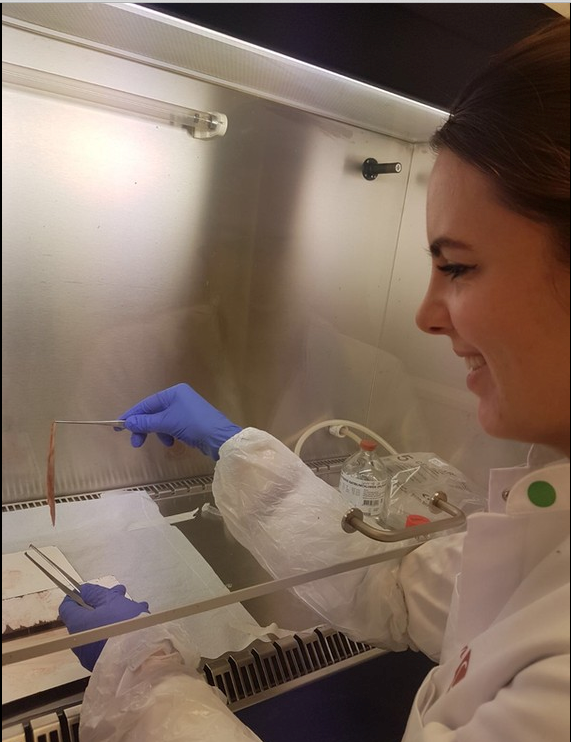Scientists around the world have been turning their research priorities to the study of COVID-19, or SARS-CoV-2, including an Elphinstone Secondary grad working in the Netherlands.
Alex Cloherty graduated from Elphinstone in 2011 and is now working on her PhD at Amsterdam University Medical Center in the Netherlands, where she focuses on research into viruses, immunology and microbiology.
She’s also the author of the blog Microbial Mondays, www.microbialmondays.com, where she explains some of the science behind her research and topics related to her specialty.
In an interview for Coast Reporter Radio, Cloherty said she’s always been interested in reading and talking about science.
“I always liked seeing what other people were doing in terms of education of not only people who wanted to go on in academia or hard-core science but just bringing the joy of science to everyone.”
Cloherty said the Microbial Mondays blog grew out of a mentoring program she was involved in as an undergraduate at UBC Okanagan and that interest in the blog has gone up as people look for sources of information on viruses.
“I had a 500 per cent increase when I wrote an article about coronavirus compared to previous articles,” she said.
Cloherty waited to write about COVID-19 until she could review some of the research others were doing, and she said the speed at which scientists around the world have made headway into understanding the virus has been impressive.
And now, the research group Cloherty works with is also getting ready to study aspects of SARS-CoV-2.
“In our group we usually focus in on this one pathway within cells, which is sort of like a recycling system within cells,” she said. “This system is important in terms of breaking down old or broken pieces of our own cells that need to be broken down into their component bits so they can be made anew, but it can also act as a defence system… And now we’re trying to see if we can use the same approach in order to target the SARS-CoV-2 virus.”
Cloherty said the research is aimed at treatments as opposed to developing a vaccine, which is expected to take a long time.
She described one of the concepts, host-directed therapies to work in combination with a traditional antiviral that targets the virus itself, in a blog post called “The host and the hijacker.”
Cloherty wrote that host-directed therapies could “sabotage and lay traps in the parts of your territory that you expect your enemies will come to first… If we cut off what [viruses] want from us, we won’t look like such a desirable territory.”
Cloherty also said that, yes, COVID-19 does look like those graphics in the media showing a ball covered in small protuberances, and that knowing the shape of a virus is important for scientists trying to find ways to combat it.
“Imagine that childhood game in which you have to fit blocks into the right [shaped] holes. It’s comfortable for adults when we have sight, but when you suddenly lose your eyesight, if you have to do that with your eyes closed, it becomes much harder to find the right block to fit into the hole,” she said. “That’s the advantage that these really high resolution images give us, they let us find the right drug to fit into the right hole on the virus.”
Cloherty said this is a very interesting and exciting time to be involved in her field of science, and people outside the scientific community are really interested in what researchers are doing as well.
“I’ve never had so many people asking me about viruses and what vaccines are, how vaccines work and how long they take to develop,” she said. “I got my hair cut for the first time since the start of the crisis recently, and I was talking for the whole time with the hairdresser about this – it's almost turning me into an extrovert.”
But, she also said a lot of people have been asking her why, even with so many scientists around the world working on SARS-CoV-2, developments are taking so long.
“It will take a long time and social distancing is really hard and scientists feel it too. We also like hanging out with our friends and having a beer after work,” she said. “But we’re all working as hard as we can in order to find something to improve our situation, so the patience in the meantime is really appreciated.”
You can hear the full interview with Alex Cloherty on Coast Reporter Radio episode 188 at www.coastreporter.net/audio



